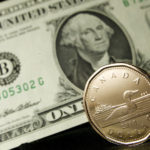Gold was little changed on Monday, trading not far off from the lowest in more than five years, as robust US employment data released on Friday reinforced speculations for an interest rate hike in as early as September, supporting the dollar.
Gold for delivery in December traded 0.24% higher at $1 096.7 per troy ounce at 07:02 GMT, shifting in a daily range of $1 097.6 – $1 089.0. It rose 0.4% on Friday to $1 094.1, closing the week 0.1% lower.
The precious metal has been under heavy selling pressure ever since the Federal Reserve concluded its Quantitative Easing program and spurred speculations it would raise interest rates in the US this year for the first time in almost a decade. FOMC policy makers said at their latest meeting that the job market has been improving, citing solid job gains and declining unemployment, fueling speculations that the hike could come in as early as September.
Data by the Labor Department on Friday showed that US nonfarm employers added 215 000 jobs in July, which undershot projections for a 223 000 jobs gain and led to a minor daily advance for gold as some market players saw a possible hike delay toward December.
However, the number was in line with the general view of a continuously improving labor market. Moreover, payrolls data for May and June were revised up to show that 14 000 more jobs were created for the period than previously reported, while the unemployment rate remained at 5.3% in July, the lowest since April 2008.
“While a delay in rate hike expectations may ease some of the near-term pressure on gold, it does not mean prices would rally from current levels given expectations that the Fed will eventually hike rates,” said for CNBC HSBC analyst James Steel.
Atlanta Federal Reserve President Dennis Lockhart said last week that the central bank is close to an increase and it would take “significant deterioration” in the coming US economic data for him to not support a rate hike in September, according to an interview with the Wall Street Journal.
Investors tend to turn bearish on gold at times of economic growth and rising interest rates as the precious metal yields returns only through price gains, while investment instruments that pay interest, such as bonds, become more attractive.
The US dollar index contract for settlement in September was mostly unchanged at 97.630 at 07:02 GMT, having shifted in a daily range of 97.785-97.615. The US currency gauge fell 0.3% on Friday and settled the week 0.2% higher, having earlier risen to a fresh four-month high of 98.425. A stronger greenback makes commodities priced in it more expensive for foreign investors and curbs their appeal as an alternative investment.
A cooling Chinese economy has also spurred concern about demand from the biggest consumer. Data over the weekend showed that Chinese exports slumped an annualized 8.3% in July, sharply exceeding a projected 1% drop, while imports contracted 8.1%, compared to projections for -8.0%.
A separate report showed a pick-up in consumer prices last month, with the corresponding CPI rising an annualized 1.6% from 1.4% in June, but producer prices tumbled 5.4%, well above an anticipated 5.0% decline.
Reflecting the overall negative sentiment towards the precious metal, assets in the SPDR Gold Trust, the biggest bullion-backed ETF, fell by 0.24 tons on Friday to 667.69 tons, the lowest September 2008. Holdings in the fund have shrunk by nearly 51% since peaking at 1353.35 tons in December 2012.
Pivot points
According to Binary Tribune’s daily analysis, December gold’s central pivot point on the Comex stands at $1 091.5. If the contract breaks its first resistance level at $1 101.5, next barrier will be at $1 109.0. In case the second key resistance is broken, the precious metal may attempt to advance to $1 119.0.
If the contract manages to breach the S1 level at $1 084.0, it will next see support at $1 074.0. With this second key support broken, movement to the downside may extend to $1 066.5.
In weekly terms, the central pivot point is at $1 091.1. The three key resistance levels are as follows: R1 – $1 101.9, R2 – $1 109.8, R3 – $1 120.6. The three key support levels are: S1 – $1 083.2, S2 – $1 072.4, S3 – $1 064.5.





